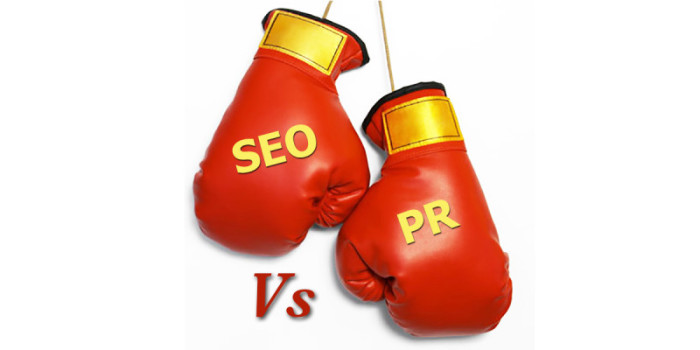
PR and SEO: teamwork or combat?
There was a time when public relations and search engine optimisation were considered disparate disciplines, with brands employing separate agencies to deal with each area individually. The means of drawing the divide were numerous: PR dealt with print, SEO dealt with the Internet; PR involved stunts, SEO involved keywords; PR spoke to people, SEO to search engine robots.
With the advent of Google’s Panda algorithm update on February 23rd 2011, however, the digital landscape changed significantly. Suddenly, Google had upped the bar on what it deemed to be worthy content, weeding out and penalising those sites whose pages comprised thin, keyword-stuffed copy and precious little else. Cue the entry of the PR brigade, versed at producing readable, engaging and genuinely unique content.
On April 24th 2012, the ramped-up Penguin algorithm update started to look at inbound links to websites, which we refer to as “backlink profiles”. This tied back into the quality content agenda, since the only way to solicit a backlink from a high quality and high authority site is via high quality content.
At the same time, PR suddenly found a way of measuring itself in more tangible terms than using questionable advertising value equivalent (AVE) figures to guestimate the perceived monetary value of press and editorial exposure. The worth of that blog post, survey, competition or video could be defined in terms of likes, shares and referral traffic to a given client’s website, thereby justifying the sheer amount of effort having gone into conceptualising, producing and placing the content on the part of the PR team.
It’s reasonable to say, then, that PR and SEO are now very complementary as far as the content marketing side of things goes. That said, the immediate issue lies in the increase of inter-agency competition, since SEO and digital marketing agencies now have to contend with PR-turned-content marketing agencies, and vice versa. At present, the interplay between the disciplines is very much at a “we can do that too” level. In reality, I feel that there is legitimately room for PR and SEO teams to work synergistically, rather than in direct competition.
A good SEO team, at its heart, has a fundamental understanding of the mechanics of a search engine, how its robots read a website and how the technical set-up of a website can influence search engine visibility. SEOs are also well-versed in preliminary keyword research, allowing them to identify which terms are most hotly searched for. This, in turn, enables them to decide which synonyms to include more readily in things such as website copy, meta data and content for distribution.
When it comes to putting pen to paper, however, it’s fair to say that a lot of SEO teams are not wordsmiths, nor do they truly understand how to fashion content to a particular audience. When SEO teams talk about “outreach”, or the modern-day version of “link building”, this should now be the remit of the PR team, who are natural-born relationship builders and storytellers. Ultimately, placing a piece of content is a selling-in process, which requires the panache and the relationship skills of a well-versed PR.
For an agency to legitimately propagate the “we do that too” sales pitch, they need to have a robust PR team and a genuine SEO offering, from technical search engine marketers and Google-literate strategists.
Want more information? Contact us here

